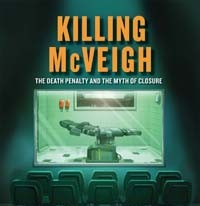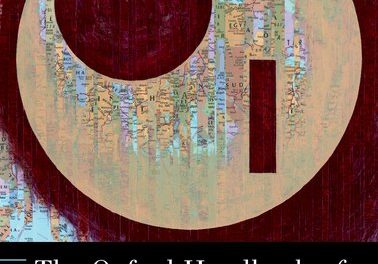Publisher:New YorkUniversityPress
Book Review by: Paiso Jamakar
Most stories of terror attacks – both short ones in newspapers and longer versions in books – contain a lot of details answering questions relating to the who, what, when, where and how of events, but not enough on the why. It’s only the answer to the why that makes sense to the reader and does not leave him wanting.
Moreover, it is only with the detailed and well-understood answers to the question of why terrorists committed their deadly acts can we, and particularly our governments, take preventive actions. By giving verbal vent to their anger and listening to their grievances, we can thwart attacks and prevent loss of hundreds of lives in the future.
This book – a well-documented account of one of the most deadly attacks on innocent victims in United States history, the destruction of the Alfred P. Murrah building in Oklahoma City that killed 168 people on April 19, 1995 – has a lot of details on the first four journalistic questions, but it falls short on answering the question “why” Timothy McVeigh took the extreme action of detonating a truck bomb there.
That shortcoming is of course not the fault of the book’s author Jody Lynee Madeira. It’s probably that not enough materials were available for her research that adequately answers the all-important question of “why” McVeigh performed that massive deadly act.
In the September 11, 2012 terrorist attacks, the news media were replete with reports of the details, but I felt at a loss daily, thirsty for a single story on why anyone would undertake such destructive actions. I did not come any account of why terrorists attacked theWorldTradeCenter.
It was not until I came across and read Fareed Zakaria’s cover story in Newsweek, Why They Hate Us that the reasons behind the attacks made sense to me. That article, written by someone who has deep knowledge of the tension-filledMiddle East region, put together well the motives behind the bombings of the twin towers and the Pentagon building.
In several parts of the book, Madeira writes about numerous efforts by McVeigh to change his image of a heartless, evil man into that of someone who nursed deep anger against the United Statesgovernment, particularly the FBI, for killing 75 people in Waco, Texas. Timothy McVeigh wanted the public to understand clearly that he supported the Branch Davidians, and he had traveled to Wacototing antigovernment literature on March 30th, 1993 to show his support for them.
He was also mad at the government for its actions in Ruby Ridge and elsewhere. He expressed his anger against theU.S.government by planning an elaborate scheme to systematically combine chemicals into a potentially explosive concoction and use that in sufficient quantity to blow up a major government building in a large city.
By successfully executing that plan, his mission of expressing his anger against his government was accomplished. He did not mind paying for it with his life. He ended his life with a lethal injection, which was watched by 242 people.
Timothy McVeigh wanted the public to make no mistake in knowing why he did what he did, and he wanted his motive to be revealed and explained in great detail in an “authorized biography.” He contacted several potential biographers, screened them through interviews and to choose two of them as his “historians.” They were Lou Michel and Dan Herbeck,Buffalo,New Yorkjournalists
The materials gathered by these two men, which included about 75 hours of interviews with Timothy McVeigh, resulted in a book published about seven years after the blast entitled: American Terrorist: Timothy McVeigh and the Oklahoma City Bombing.
Timothy McVeigh was executed on June 11, 2001, but as the author of Killing McVeigh writes, there can really be no closure. Who among the families of the 168 victims stops thinking about the loss of their loved ones?
All in all, this is a well-researched and well-written book. It focuses on the victims’ surviving family members’ struggles (and inability) to find closure. That is especially hard to do when the chief perpetrator Timothy McVeigh’s anger was not personally directed to them but at their government. The author Jody Lynee Madeira is an associate professor at the Maurer School of Law atIndianaUniversity.







